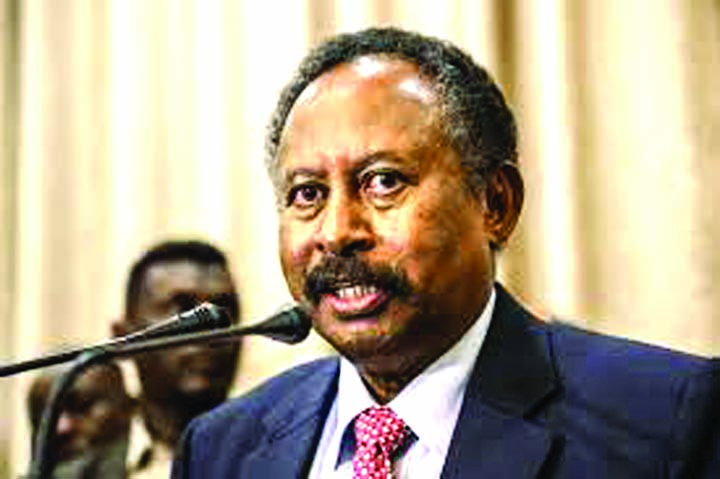
AP, Khartoum :
Sudan’s new prime minister said in an interview that ending his country’s international pariah status and drastically cutting military spending are prerequisites for rescuing the nation’s faltering economy.
Abdalla Hamdok, a respected former official with the U.N. Economic Commission for Africa, told The Associated Press on Sunday that he has already talked to U.S. officials about removing Sudan from Washington’s list of countries sponsoring terrorism, and portrayed their reaction as positive.
He also called for sharply reducing military spending, hoping for a “peace dividend” if current efforts to negotiate deals with armed rebels are successful. He said military spending takes up as much as 80% of the state budget.
Sudan stagnated for three decades under former President Omar al-Bashir, convulsed by a bloody civil war and rebellions in its far-flung provinces. Al-Bashir’s autocratic rule ended in April when the military ousted him after mass street protests by a pro-democracy movement, which began late last year.
“For 30 years, we were isolated,” Hamdok said in the interview in the capital of Khartoum. “We were treated as a pariah state. We want to tell the world we are moving away from sanctions, issues of punishment and all that, to a Sudan that is coming back to the fold of normal nations.”
As Sudan begins a new chapter, getting off America’s state sponsor of terror list is the “key to anything that we can do in this country,” Hamdok said, adding that a “democratic Sudan is not a threat to anybody in the world.”
Still, tensions between the military and civilians are expected to feature prominently in Hamdok’s unruly transitional government, which is expected to last three years before general elections.
In such an environment, Hamdok faces an uphill battle to carry out ambitious economic reforms, said Jehanne Henry, a Sudan researcher at Human Rights Watch. Henry said Hamdok “has to work with the generals, who could veto things.”
Although Hamdok heads the transitional Cabinet, the military leaders that ousted al-Bashir still want a large role in the transition. Sudan’s top general, Abdel-Fattah Burhan, was sworn in Wednesday as the leader of a joint military-civilian Sovereign Council. Five of its 11 members are from the military.
Hamdok said he is committed to making a partnership with the generals work.
The United States named Sudan a state sponsor of terror in 1993, and the designation stuck through the al-Bashir regime. As one of the last acts of the Obama administration, the United States began a formal process to de-list Sudan in January 2017, but this was put on hold when mass protests began in December. Moves to de-list Sudan could resume once the country’s political situation has stabilized.

